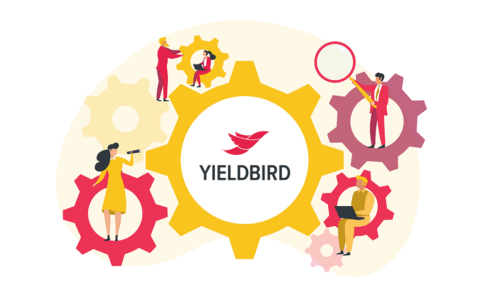“Routine” Lessons Arising From a Time of Crisis and Change
In life, not everything can be planned, or goes according to plan. The same applies to the business world. Many companies that have so far remained resolutely afloat have begun to falter in the face of the Covid-19 wipe-out. During this time of crisis, we’re all feeling the pain. But one factor always determines survival (and not only in business), and that is the ability to adapt and perceive the positives where they seem nowhere to be found. A Good Captain is one who can constantly correct the course of his ship, but the Best Captain is the one who discerns new opportunities in previously uncharted waters. “Discovering new shores” is an everyday challenge in times of uncertainty, and we can prevail with flying colours thanks to our ability to respond constructively to what life throws at us. What’s more, we learn from such experiences, and we emerge from such crises stronger and wiser.
Although change is our natural environment; over the years at Yieldbird, we have endeavoured to establish processes, procedures and an organizational culture that have ultimately served us well. Suddenly, a change has taken place and forced us to make bold decisions. Some of them, despite our apprehension, have turned out to be valuable lessons, and even inspired us to act in new ways. We’ve gathered here a number of takeaways arising from how we’ve turned unplanned changes into opportunities to develop and grow.
Remote work

We are all working remotely (because we have to), and we are all trying to do so to the best of our ability. Previously, our work assumed a daily meeting in the office, and remote work was just an extension of this everyday routine. However, it turns out that what once seemed difficult to do (it was pretty hard to envisage a team cooperating effectively by way of videoconferencing alone), is currently working in everyday practice! Our work has not lost either its timeliness or its efficiency – quite the opposite, in fact! We have observed an increase in engagement and commitment; and we are proud of the fact that we have been able to adapt so well, and so quickly, to the new reality.
Care and mindfulness in making decisions (to include financial)
In a prosperous situation, we rarely wonder if we really need specific tools, or whether we are using all applications effectively. We generate costs, believing that our decisions will “pay off and pay back” in a timely fashion. Unfortunately, these times of increased uncertainty have required more assessment and care when it comes to making financial decisions. Greater precision in determining needs has meant a more considered and accurate selection of the necessary tools needed for the achievement of these goals. This approach is pure pragmatism, which is nowadays an indispensable trait; and is it one that verifies what we really need, and what we can put aside. With this new perspective on things, it is easier to see and set priorities, and act in alignment with them.
At Yieldbird, we have managed to introduce changes such as the limiting of costs, thereby reducing financial losses, e.g. by resigning from tools that in the time of crisis have not aided work efficiency.
Optimization of tools for managing work schedule

Almost everyone knows how hard it is to reconcile work at home with family life. Unfortunately, this is affecting the functioning of all household members, and working hours have become blurred. That is why we have chosen to keep faith with the applications and tools we were using before the crisis; when we perhaps did not fully appreciate their central role in managing our own work schedule. Now, when we need to focus more than ever on planning our own work schedule, applications such as Google Keep or Trello have proved to be worth their weight in gold. These tools not only aid better planning, but also ameliorate and advance the implementation of tasks. We are also paying more attention to the correct and timely establishment and implementation of tasks in Jira. What previously could have been implemented on the go, is currently being reflected in the system, which adds both precision and transparency when it comes to the daily execution of tasks.
Improved communication skills
For many of us, to one degree or another, having to deal with work-related issues through calls and video conferencing is associated with stress levels. Each of us is accustomed to direct communication when agreeing project details; or simply in everyday ordinary exchanges. However, the fact that we have had to switch to online communication channels has encouraged us to embrace these forms. The opportunity to conduct workshops or online meetings has also afforded us the chance to develop a greater naturalness in communication; and it has also forced us to pay more attention to those on the other side. This has provided us with a lesson in mindfulness and in harnessing an ability to eliminate distractors and distractions from our immediate environment. In other words, we have been able to hone both our speaking and listening skills. It has also allowed us to develop a better system for conveying information in a concise and succinct way.
Every change represents an opportunity. It’s up to us to notice… and cease the moment! Yes, routine does bring with it a sense of security, but this departure from our comfort zone has perhaps given us the kind of energy boost that we all needed.
The takeaways discussed here are the lessons we at Yieldbird have learned from our determination to meet the challenges arising from this time of crisis. Like everyone, we have had to face difficult situations, but what we have learned is that new skills, such as effective remote working, the prioritizing of tasks and costs, as well as the clear-sighted organization of work-tasks, have placed our new work culture on the firmest of footings.







